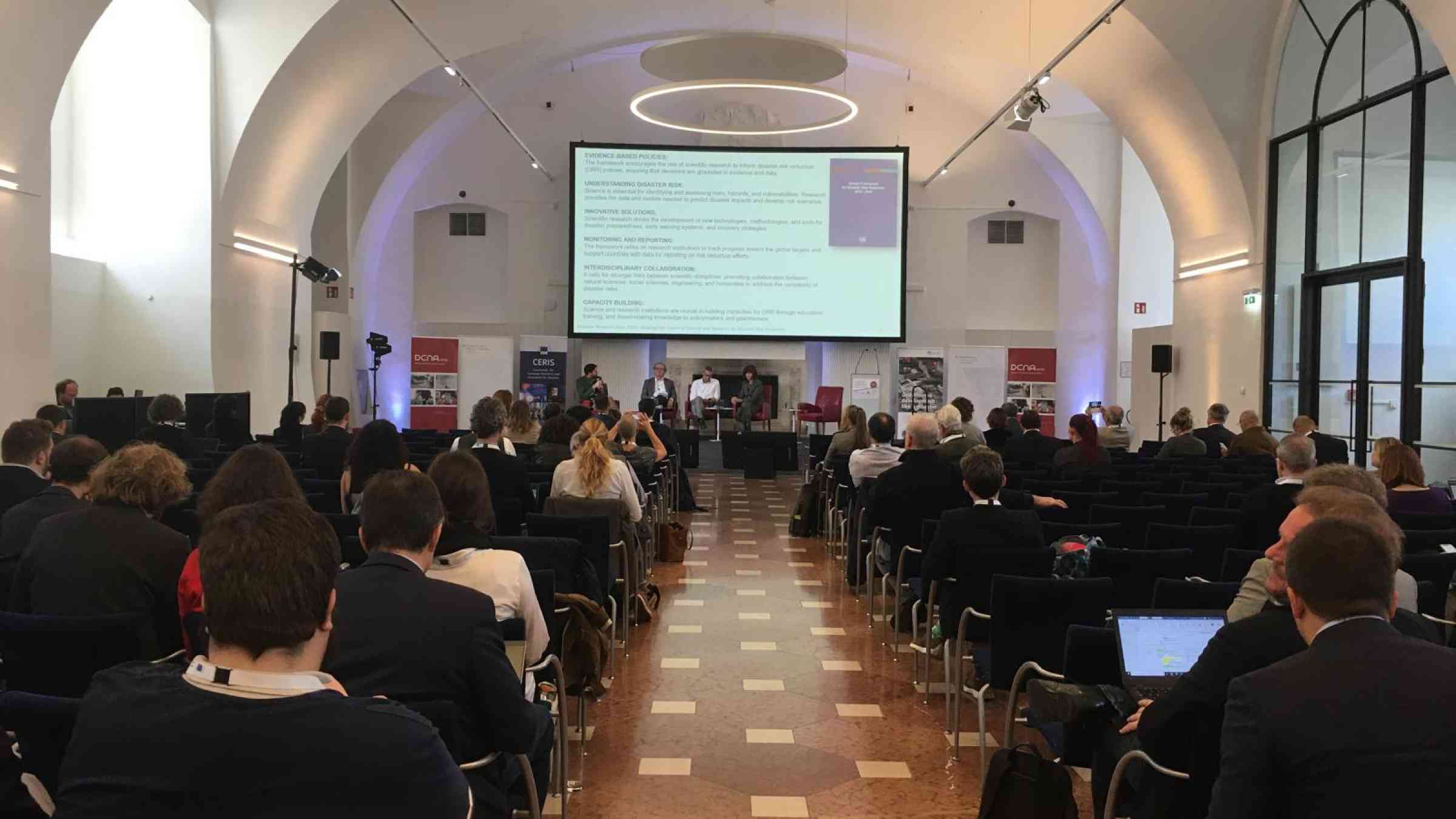Disaster Research Days 2024: Advancing global resilience through science and cooperation

The Disaster Research Days 2024 (DRD24), a joint initiative by the United Nations Office for Disaster Risk Reduction (UNDRR) and the European Union, took place from October 8 to 10 at the Austrian National Library in Vienna. This event brought together about 200 participants from across science, research, and policy to strengthen global disaster risk reduction efforts and enhance resilience to disaster and climate-related challenges.
On October 10, the UNDRR-led session, focused on the European Science and Technology Advisory Group (E-STAG), provided a platform to explore how scientific innovation can shape disaster preparedness and policy.
The day unfolded with a series of in-depth panel discussions, beginning with a focus on the role of higher education in disaster risk leadership. Experts from Heidelberg University and the University of Vienna stressed the importance of preparing future DRR leaders by embedding resilience thinking into academic programs. Following this, speakers from the Community for European Research and Innovation for Security (CERIS) and E-STAG explored how scientific research and technology can bridge gaps in DRR policy, with case studies from the Euro-Mediterranean Centre on Climate Change and the Italian Civil Protection Department illustrating these advances.
Urban resilience took center stage in the next panel, where the MCR2030 initiative was presented. Milan's collaboration with Save the Children Italy demonstrated how municipalities are building stronger, more resilient communities through partnerships and local initiatives. Attention then turned to the intersection of public policy and crisis management, with discussions on how governments can enhance crisis response mechanisms.
One of the key moments of the day was the discussion on aligning the outcomes of COP29 with the UNDRR Regional Platform for DRR. Experts explored how the global climate agenda and disaster risk reduction efforts can reinforce each other.
Throughout the event, DRD24 underscored the vital role that collaboration across disciplines plays in tackling global disaster risks. The discussions during the E-STAG session reflected a shared commitment to harnessing the power of science, technology, and innovation to create safer, more resilient communities worldwide. With growing attention on the alignment of climate adaptation and disaster risk reduction, DRD24 served as a crucial step toward forging a unified approach to addressing the complex challenges posed by climate change and disasters.